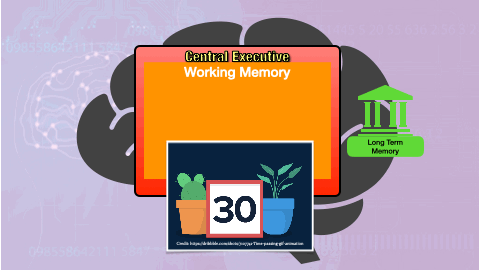top of page

Reflections on Theory and Practice
In Pursuit of Understanding and Practices That Drive the Greatest Impact in Education
Retrieval Practice
Retrieval practice, also called The Testing Effect, is one of the most important and foundational concepts in learning. Retrieving information when we need it is the whole purpose of learning. It's not what we put in our brains that is important, it is what we can get back out that matters.
What is Retrieval Practice?
Retrieval Practice which is also called The Testing Effect or even Test-enhanced Learning is the finding that when we focus learners on retrieving information from memory, this actually enhances and strengthens memory.

How Does It Work?

There are two parts to retrieval practice. The first part is encoding. Encoding means the initial storing of information in long-term memory. If information was not encoded in the first place, then it can't be retrieved.
The second part involves retrieving that information at a time after it has been encoded. In order to do this, we must be put in a situation where we are required to draw up that information.
The problem is that this retrieval is not always easy, especially at first and over time retrieval strength can diminish.
Why is Retrieval Practice Important?
Without retrieval practice, the learning process becomes considerably more challenging. If we merely study or learn something once, our retrieval and storage strength remain weak. We fail to signal to our brain that this information is vital to retain, diverting its efforts towards strengthening other connections. Eventually we forget to the point that retrieval is not possible. If we resort to mere rereading or highlighting, we miss the opportunity to engage in the active recall of specific information. This lack of effortful recall diminishes the strength of the connection, as our brain is being given the information again, it is not being asked to retrieve the information.
A common modern-day illustration is our reliance on phones for storing phone numbers and directions. In the pre-smartphone era, we memorized numerous phone numbers and could navigate without relying on maps. We had to actively recall and use this information from memory.
However, with the advent of smartphones, these tasks have become automated. We're either provided with the information or it's done for us, leading to a decrease in both retrieval strength (our ability to recall) and storage strength (our ability to retain) for these details.

Why is it also called "The Testing Effect"?
Why is it also called the testing effect? When we take a test we are actively trying to pull information from our memory. Retrieval Practice and testing are the same thing. But unlike the way we commonly use tests in schools, Retrieval Practice is a strategy for learning and generally comes with “little stakes” to “no stakes” for the students using them. Because testing has been associated negatively in many educational settings, retrieval practice has become a more popular term to use.


Peter Brown puts it well in his book Make It Stick:
But if we stop thinking of testing as a dipstick to measure learning—if we think of it as practicing retrieval of learning from memory rather than “testing,” we open ourselves to another possibility: the use of testing as a tool for learning.Where the research has shown testing really works though, is through its other attributes, specifically the retrieval of information.

Theory to Practice:
A teaching connection
Effective retrieval practices include:
-
Summarization: Restate the main ideas of a lesson or retell the key parts of a story
-
Brain Dump: Set a timer, jot down all you know about a topic on paper or a whiteboard.
-
Mapping: Create a mind map connecting related phrases or ideas.
-
Drawing: Illustrate the concepts you're learning.
-
Frequent Low-Stakes Tests: Administer regular, low-pressure tests on the subject.
-
Test Creation: Develop a test based on your knowledge.
-
Elaboration: Explain things to yourself, asking questions like "why" and "how."
-
Teaching: Share what you've learned with someone else.
-
Enacting: Act out the information you've acquired.
Just to be clear retrieval practice is not things like: Highlighting and Rereading
If you want to learn more about Retrieval Practice:
www.retrievalpractice.org
References I used for this page:
Roediger, H. I & Pyc, M. A. (2012). Inexpensive techniques to improve education:
https://www.researchgate.net/publication/236221262_Inexpensive_techniques_to_improve_education_Applying_cognitive_psychology_to_enhance_educational_practice
Karpicke, J. D., & Blunt, J. R. (2011). Test-Enhanced Learning
https://www.frontiersin.org/articles/10.3389/fpsyg.2016.00350/full
Gerbier, Emilie & Toppino, Thomas & Koenig, Olivier. (2014). Optimising retention through multiple study opportunities over days: The benefit of an expanding schedule of repetitions. Memory (Hove, England). 23. 1-12. 10.1080/09658211.2014.944916.
https://www.researchgate.net/publication/264796869_Optimising_retention_through_multiple_study_opportunities_over_days_The_benefit_of_an_expanding_schedule_of_repetitions
Yang, C., Potts, R. & Shanks, D.R. Enhancing learning and retrieval of new information: a review of the forward testing effect. npj Science Learn3, 8 (2018). https://doi.org/10.1038/s41539-018-0024-y
https://www.nature.com/articles/s41539-018-0024-y
Daniel, D. B. Promising principles: Translating the science of learning to educational practice. Journal of Applied Research in Memory and Cognition, 1(4), 251–253. https://doi.org/10.1016/J.JARMAC.2012.10.004
https://www.academia.edu/15180876/Promising_principles_Translating_the_science_of_learning_to_educational_practice
bottom of page